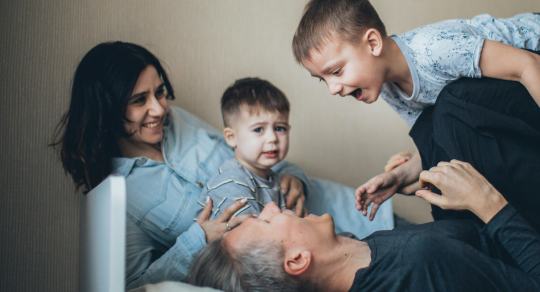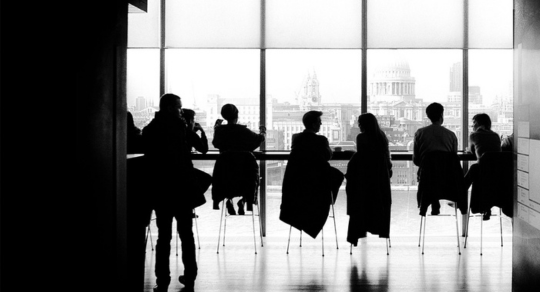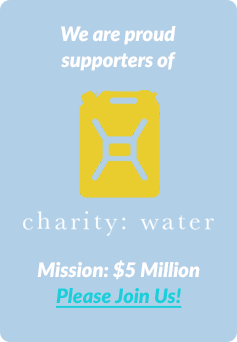1. We think our purpose is something outside of us.
The truth is your primary purpose in life is simply to be you — to experience each moment, feel, learn, grow, express yourself, love, do what you love, and give your gifts.
In this way you are always living your purpose — even right now. You bring this purpose of being you to every role and responsibility you take on.
2. We think we’ll be happier when we achieve our goals and dreams.
The truth is sustainable happiness is an inside job. Research suggests that even if your wildest dreams came true — you won the lottery, landed your ideal job or found the love of your life — six months later you would more than likely default back to your typical level of happiness and life satisfaction.
In other words, no amount of achievements or possessions will bring you the fulfillment you seek — unless you also do the inner work to learn to see the beauty and magic of life around you right now.
3. We worry about what could go wrong instead of envisioning what could go right.
When we worry about the future and what might happen, we create our own personal hell in an otherwise peaceful present moment. Yet most worry is completely pointless; without an accurate crystal ball, you don’t really know what’s going to happen in the next hour, day or five years time anyway.
However, the science of quantum physics shows that we influence and shape the physical world with our thoughts and expectations. So, if you are going to let your mind wander off into the future, you might as well imagine what you do want to happen. Ask yourself: What is my ideal outcome? What is the best case scenario? That way you are positively shaping the quantum field of reality in your favor.
4. We react to our circumstances instead of choosing our response.
As human beings we have two major super powers — the power of awareness (our attention or focus) and the power of choice (what we choose to focus on).
Most of us walk around so lost in our thoughts about the past and worries about the future that we’re not actually paying any attention to the world around us in the present moment. Then when something happens, we react to it on autopilot based on the conditioned habits of thought, emotion and behavior we picked up in childhood — like blame, despair, stress or self-criticism.
It is much more empowering to choose how you respond to what happens to you. You can choose peace instead of irritation; forgiveness instead of blame; compassion instead of judgment; faith instead of fear; happiness instead of negativity; empowerment instead of victimhood.
This power to choose is one of our greatest assets. As Viktor E Frankl wrote after his experience as a concentration camp inmate: “Everything can be taken from a man but one thing: the last of the human freedoms — to choose one’s attitude in any given set of circumstances, to choose one’s own way.”
5. We put more energy into anger than happiness.
How often do you allow small things — like heavy traffic, a long queue at the supermarket or an insensitive comment from a friend — trigger a lasting feeling of anger or frustration in you?
Yet equally small but positive, beautiful, amazing things — like the trees lining the street, the sun on your back or a thoughtful smile from a stranger — go unnoticed or undervalued.
We give away our anger and irritation for free, but put an impossibly high price on our happiness and joy and refuse to give any of it out unless something majorly big and amazing happens.
In this way, we continually sell ourselves short on the magic of life.
How about choosing to put an impossibly high price on your anger, and beginning to dish your happiness out for the smallest and simplest of things?
6. We put other people’s opinion of us above our own.
While you may be trying to make the world a better place by people-pleasing and conforming to the standards and wishes of other people, you are actually making the world a worse place by hiding your unique once-in-humankind authentic self; ignoring your soul destiny which could be filled with passion and purpose and triumph and joy; and passively buying into a belief system which says judging others for their life choices is the right thing to do.
The top regret of the dying is wishing they’d had the courage to live a life true to themselves, not the life others expected of them. Don’t get to the end of your life with the same regret — you’ve been warned.
7. We treat life like a race and miss out on the magic of daily joys.
Life is not a race. Unfortunately many of us run from one thing to another to another with no time to breathe, let alone time to pay attention to and soak up the experiences we are having.
When we wake up in the morning, instead of enjoying the soft bed sheets and stretching our body, we begin mentally planning for the day ahead and thinking about what we’ll have for breakfast. While eating breakfast, we think about the bus we’ve got to catch. While we’re on that bus, we worry about the project due at work. While we’re working on that project, we dream about the weekend or our next holiday to escape our life.
Life can only be lived in the now and even the most ordinary tasks — like washing the dishes, showering or eating breakfast — can become extraordinary magical experiences when we tune out of our circling thoughts and back into the present moment. Slow down. Tune back into life.
8. We escape from our life instead of building a life (and mindset) we don’t have to escape from.
We count down to Friday and dread Monday. We turn on the television at night to avoid facing our dissatisfaction with our lives. We use excessive eating, drinking or social media scrolling to numb our feelings instead of exploring them and listening to what they have to say.
Do some vital self-reflection. Are you making time for the things you love — the activities and people that make you feel most alive? What is your soul calling you to be, do or create? Do you need a complete lifestyle change or simply an attitude adjustment where you appreciate what you already have? If you don’t go within and find out the answers to these questions, you will continue to go without.
9. We prioritize the wrong things.
We make time for mindless television consumption, but not for meditation. We offer our best smile and attitude to strangers we’ve just met, but take our loved ones for granted. We think life is about what we can get, not what we can give. We spend time judging and criticizing ourselves and others, instead of aiming for greater levels of love, understanding and compassion. We do the things we hate more often then we do the things we love. We train our bodies, but not our minds. We feed our bodies, but not our souls.
If you truly want to live your best life, prioritize the good stuff — do the things that make you the best version of you, like meditation or yoga; redesign your timetable to revolve around your values and joys; schedule in time for your goals and dreams; be present with your loved ones; wake up and think about what you can give today; and always lead with love.
10. We think we are who we are not.
We think we are our bodies, when really they are simply a temporary vehicle or temple for our soul. We think we are our thoughts and emotions, when really they are simply visitors passing through our awareness or consciousness. We think we are our job titles and social roles, when really they are just costumes we wear for certain parts of the day for certain periods of our life.
Your body, thoughts, emotions, titles and roles are always changing — so if you use them to obtain your sense of identity and worth, you will be left feeling lost and confused when they inevitably change as time goes by.
Your true identity is your spirit, essence or true self — who you really are deep down below all the labels, roles and social masks. This part of you is eternal and unchanging.
Remember who you really are.






